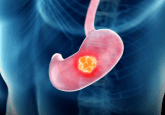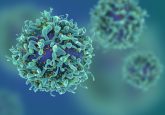Collaboration enables development of mutation detection test for colorectal cancer

Transgenomic Inc signs collaboration agreement with Amgen for the development of RAScan™ mutation detection test.
Transgenomic Inc, (CT, USA) has entered into an agreement with pharmaceutical manufacturer Amgen in order to develop a new CE in vitro diagnostic test to screen patients with metastatic colorectal cancer for the KRAS and NSAS RAS mutations. KRAS gene mutations are found in approximately 40% of colorectal tumors .
The test is called the RAScan™ and uses Transgenomic’s proprietary Surveyor®-Wave® technology, which is able to detect 1% of mutant in a background of 99% non mutant DNS. In a tumor biopsy sample the test is able to recognise nucletode mismatches mixed with wild type DNA using the DNA mismatch-cutting enzyme SURVEYOR Nuclease. Sanger sequencing is then used to detect the base change in the regions detected. Colorectal cancer is the third highest diagnosed cancer in the USA and this test will enable physicians to gain important information about tumor mutation status in order to assist with clinical decisions regarding treatment of metastatic colorectal cancer patients.
Regarding the collaboration Craig Tuttle, Chief Executive Officer of Transgenomic said, “This collaboration with Amgen is indicative of how Transgenomic’s proprietary molecular technologies are advancing personalized medicine…this highly precise, innovative test was developed at Transgenomic’s laboratories, which excel in genomic and genetic analysis, novel technology development, and its application in clinical research and trials.”
This technology is soon to be available to be purchased in Europe and will be available soon in the USA for research purposes. Transgenomic’s CLIA-certified laboratory in the USA is looking for patient samples in order to test the technology.





